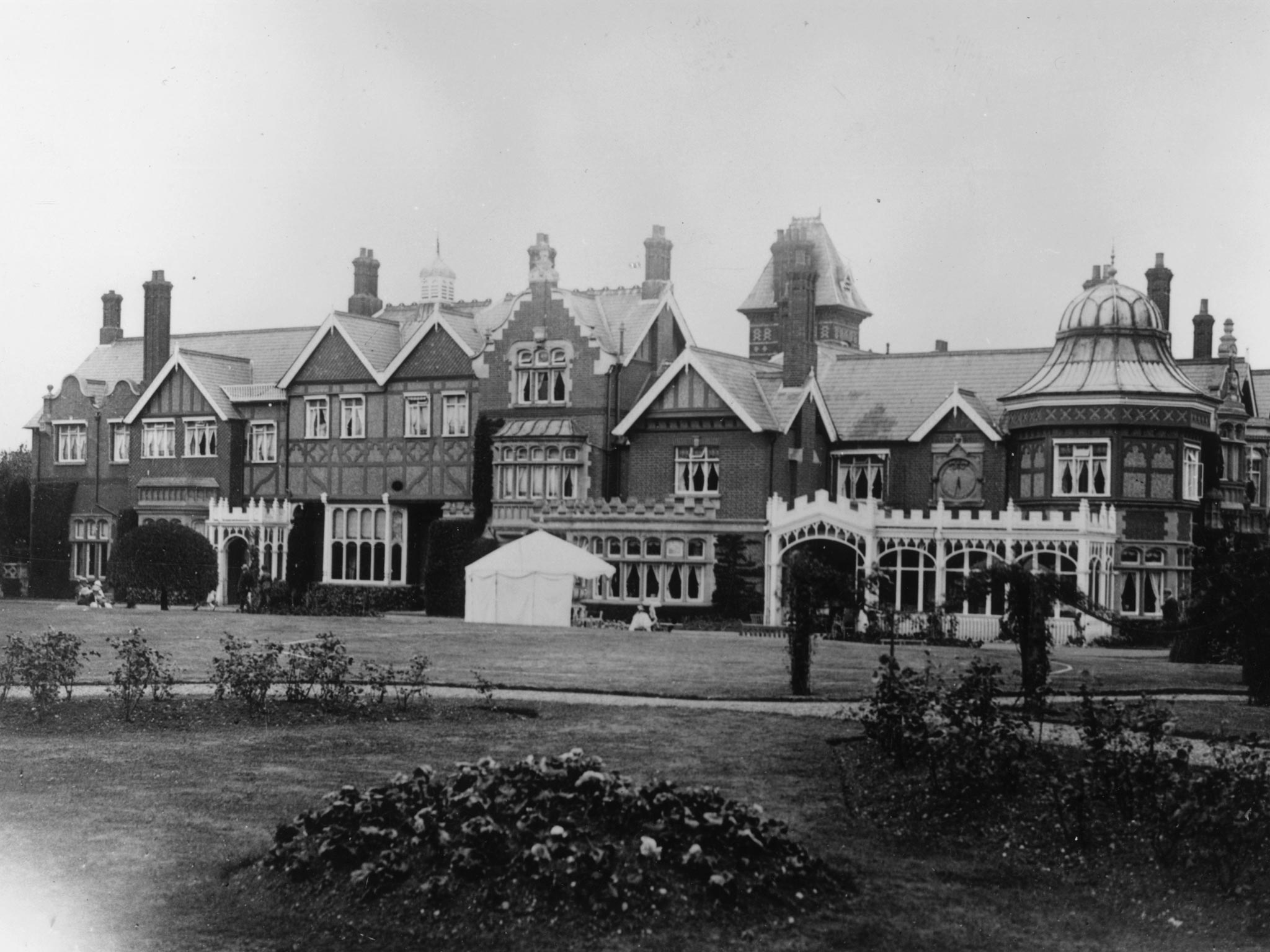Bletchley Park charities go to war over ‘Berlin Wall’: Two groups fall out over building of 6ft-high fence at historic site
Relations between the museum and the Bletchley Park Trust have been strained for some time, but have worsened over the 'ugly and offensive' fence

The “unhealthy” relationship between the two charities that share Bletchley Park, the site where codebreakers helped turn the Second World War in favour of the Allies, has soured further after one of them erected a 6ft-high fence that their rivals have nicknamed the “Berlin Wall”.
Growing resentment at the historic site, where codebreakers including Alan Turing worked during the war, was raised by Andrew Spencer, corporate events and groups manager at The National Museum of Computing, in a blog post.
Relations between the museum and the Bletchley Park Trust, which are independent of each other, have been strained for some time, but have worsened over the newly erected fence which Mr Spencer described as “ugly and offensive”.
Mr Spencer said: “This is no ordinary fence, more like a Berlin Wall-type of fence. It is dividing up the park and separating important parts from each other.” In response to the nickname, a source close to the Trust said: “That’s clearly emotive language. It’s just a fence.”
Bletchley said the fence was necessary for security to protect “ priceless artefacts” as well as iPod Touches that will be handed to visitors as part of the tour after its £8m redevelopment. Kelsey Griffin, director of operations at the Trust, said: “Visitors will be able to visit the museum in the same way.” The museum countered that the “unsightly gates and fencing are fragmenting the heritage site”.
Bletchley was the nerve centre of Britain’s cipher breaking of Germany, Italy and Japan’s encrypted signals. Mr Spencer described it as the “first factory for cipher breaking – unique and hugely important”. It was there that the German Enigma cypher was cracked.
The museum, run by the Codes and Ciphers Trust, split from the Bletchley Park Trust more than seven years ago, although it still pays rent and utilities of more than £100,000 a year.
The museum occupies Block H, the site home of Colossus, which it describes as “the world’s first purpose-built computer centre” as well as the Tunny machine, which was used to break the German codes. The two sides failed to agree on joint ticketing fees, meaning visitors to Bletchley Park must pay a £15 entry fee and then up to £5 for entry to the museum.
Ms Griffin said the Trust was open to further discussions over single tickets. Bletchley Park has removed Block H from its tour. One tour guide was removed after continuing to show visitors the museum but continues to work at the trust.
As a result of the actions, visitor numbers to Colossus and the Tunny machine have dropped, despite the two machines “representing the outstanding pinnacle of the Second World War code-breaking story,” according to Mr Spencer.
One source close to the organisations said: “Both sides are passionate about what they do, but neither side is prepared to back down. They need to sort this out.”
Join our commenting forum
Join thought-provoking conversations, follow other Independent readers and see their replies
Comments